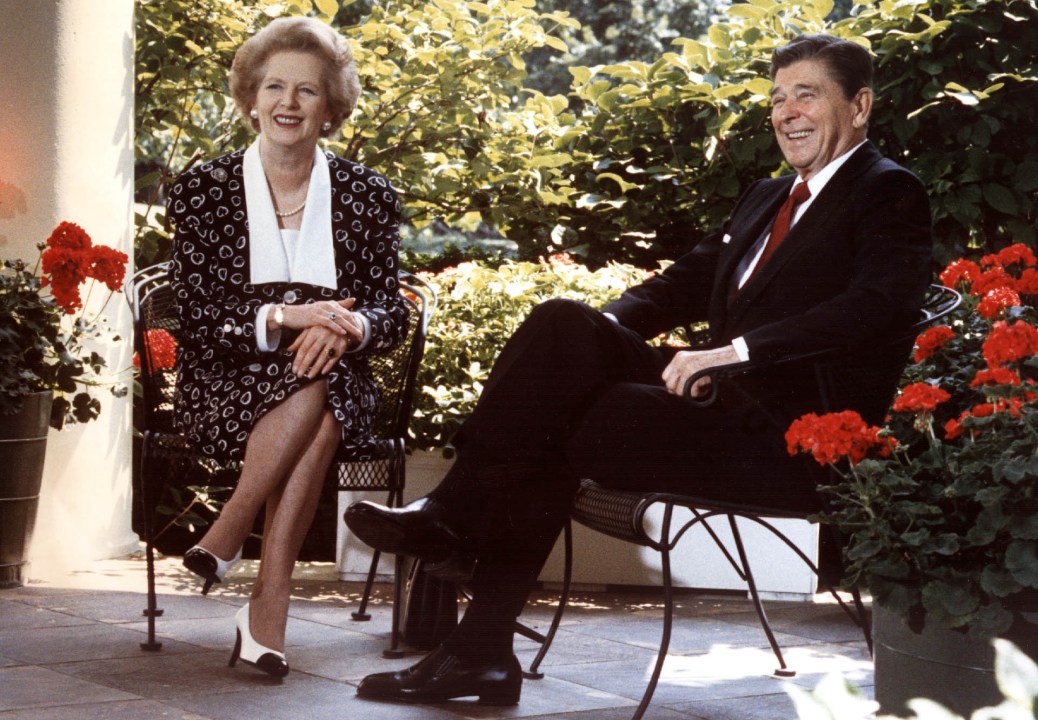Ramesh Ponnuru has written a splendid op-ed for today’s New York Times. Splendid, not because it is new or especially original, but because, alas, it’s central message needs repeating until, eventually, even the more dunderheaded class of Republican Congressman hears the message.
And it is a simple message. Namely, that asking ‘What would Ronald Reagan do?’ is almost about as useful as mining Martin van Buren, George II or Charlemagne for policy advice that will help solve today’s problems. I exaggerate of course, but only for effect. We are not now as we were then. Or, as Mr Ponnuru puts it:
Republicans are very good at tending the fire of Ronald Reagan’s memory but not nearly as good at learning from his successes. They slavishly adhere to the economic program that Reagan developed to meet the challenges of the late 1970s and early 1980s, ignoring the fact that he largely overcame those challenges, and now we have new ones. It’s because Republicans have not moved on from that time that Senators Marco Rubio and Rand Paul, in their responses to the State of the Union address last week, offered so few new ideas.
When Reagan cut rates for everyone, the top tax rate was 70 percent and the income tax was the biggest tax most people paid. Now neither of those things is true: For most of the last decade the top rate has been 35 percent, and the payroll tax is larger than the income tax for most people. Yet Republicans have treated the income tax as the same impediment to economic growth and middle-class millstone that it was in Reagan’s day.
Indeed so. Something similar may be said of some members of today’s Tory party. Like some of their American cousins they also instinctively consult the household gods – of whom the Blessed Margaret is, reasonably, the supreme being – for inspiration. But we are not now as we were then.
Elementary, you may say. You would be right. Nevertheless there remain many Conservatives who think, for example, that every tax cut will ‘pay for itself’ or that what Britain’s labour market really needs is looser regulation because the Trades Unions remain a mighty blight upon the country’s economic competitiveness.
Alas, not every tax cut actually increases revenue. (Assuming, of course, you actually want to increase revenue.) Most, in fact, do not. There is all the difference in the world between slashing taxes when they are set at punitive rates and doing so when they are by international and recent-historical standards less than unprecedentedly high.
Similarly, whatever ails the British economy it is hard to claim seriously that it’s a too rigid labour market. Not when the British labour market is one of the most flexible in the western world. As for the Unions? Pschaw. An entertaining collection of bogeymen but hardly fit to light their predecessors’ Woodbines.
These are yesterday’s battles. They needed to be fought and it was good they were won. But they do not need refighting today as though they’d never been fought, far less won, at all.
A popular, muscular Conservatism today would be less concerned with the views of CEOs and more in tune with the sense, widespread, that the game is refereed differently depending upon who you are. Big business has brought many good things to Britain (and the world) but that does not mean Tory ministers must stay quiet when capitalist excesses forget the value of its workforce or customer base.
Soaking the rich is a poor idea but so too is supposing that anything which upsets the richest 5 per cent of Britons must be a disastrous notion. Moreover, though the idea of a society created and governed by spontaneous order is a lovely notion it is not, perhaps unfortunately, a practical proposition. Government is often inefficient and sometimes barbarous too. It is also needed. Tories who give the impression that setting fire to Whitehall will solve everything do their party few favours. The people are easily frightened. Sometimes they are sensible to be frightened too.
As Mr Ponnuru concludes:
Conservatives should retain their skepticism about government intervention, the preference for letting markets direct economic resources and the zeal for ending government-created barriers to economic growth that they inherited from Reagan. In hisfirst Inaugural Address, Reagan famously said that “government is not the solution to our problem; government is the problem.” The less famous yet crucial beginning of that sentence was “in our present crisis.” The question is whether conservatism revives by attending to today’s conditions, or becomes something withered and dead.
Indeed. Of course the American and British situations are not wholly comparable. Nevertheless there are sufficient parallels for British conservatives to remember that the answer to any given policy issue does not necessarily lie within the well-thumbed pages of The Great Book of Margaret. Reagan and Thatcher were great figures with many great achievements to their record. They were hardly infallible, however. Not then and certainly not now in as much as their instincts are applicable to today’s rather different environment.








Comments